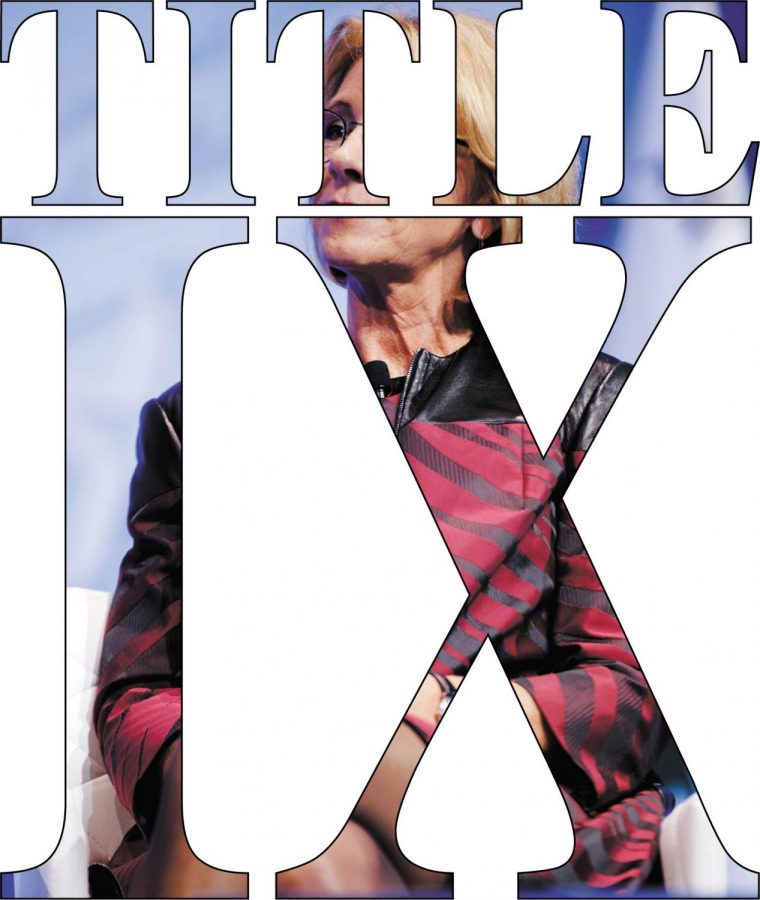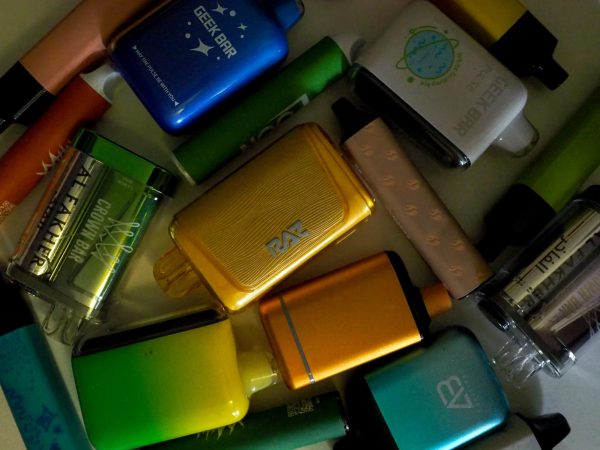Advocates concerned over changes in UVM’s sexual assault policy
Correction: This article was updated at 9:28 a.m. Oct. 8 to correct a previous error. UVM will continue to investigate off-campus sexual assault cases through the Office of Affirmative Action and Equal Opportunity. The Cynic apologizes for these errors.
New guidelines from the Trump administration will impact the way UVM and other universities can handle sexual assault, no longer requiring schools to investigate incidents that occur off-campus through Title IX, among other changes.
Betsy DeVos, U.S. secretary of education, made the changes through Title IX, a federal law that protects students from sex-based discrimination, including sexual misconduct, according to the U.S. Department of Education website.
Implemented at UVM Aug. 14, the new policies will also allow the lawyers of a perpetrator of sexual assault to cross-examine the survivor and eliminates any timeline for universities to conduct investigations, according to UVM’s Title IX coordinator.
“The system was already oppressive for survivors,” said UVM Senior Syd Ovitt. “Now it will be even more difficult.”
Ovitt is the founder of Explain the Asterisk, a student-led organization that aims to hold perpetrators of sexual misconduct accountable. Ovitt herself is also a survivor of sexual assault who has first-hand experience with UVM’s process of investigating sexual assault under Title IX.
DeVos changed the policy to “strengthen Title IX protections for survivors of sexual misconduct and to restore due process in campus proceedings,” stated on the Department of Education’s website.
Off-campus sexual assault
According to Nick Stanton, UVM’s Title IX coordinator, off-campus incidences of sexual harassment no longer fall under the Department of Education’s Office for Civil Rights’ Title IX enforcement rules.
However, off-campus sexual misconduct still violates UVM policy, and students can pursue an investigation through the Office of Affirmative Action and Equal Opportunity for student conduct and through UVM Police for safety planning and a criminal investigation, according to Stanton.
AAEO is a UVM office with the goal of ensuring compliance with state and federal laws and University policies related to discrimination, and offers “thorough and impartial investigations of complaints of discrimination and harassment,” according to the AAEO website.
The majority of sexual assault in college occurs off-campus, with 60% of sexual assault survivors reporting off-campus incidents, according to a research report submitted to the U.S. Department of Justice. 58% of college sexual assault cases occur at parties, according to the report.
Ovitt said she believes that taking off-campus incidences out of Title IX is dangerous.
“This change allows colleges to not have to deal with sexual assault that occurs off-campus,” Ovitt said. “But so many of us live off-campus. Fraternity houses, study abroad and off-campus parties are all no longer the school’s responsibility.”
Timeline of resolution
In addition, Title IX previously required that the university reach a resolution within 60 days of the report.
But the new Title IX guidelines do not offer a specific time frame, according to Stanton.
However, UVM has “retained the goal of 60 days for investigation of discrimination and harassment, including sexual misconduct,” Stanton stated.
Ovitt said UVM has gone beyond the 60-day timeline in the past, in her case lasting four months.
“The process for your timeline is really, really traumatizing. The amount of times that you have to retell your story and feel belittled makes you feel really small,” she said. “There’s a lot of pressure to be the ‘perfect victim’ when there are no perfect victims.”
Cross-examination
Direct cross-examinations, where the accused’s lawyer or representative directly interrogates the accuser or their lawyers, are also now mandatory, according to Stanton’s email.
Former U.S. President Barack Obama discouraged direct cross-examinations in 2011, who stated in a letter to congressional offices that “allowing an alleged perpetrator to question an alleged victim directly may be traumatic or intimidating, thereby possibly escalating or perpetuating a hostile environment.”
Ovitt also believes that direct cross-examinations would do more harm than good for the reporter of the incident, especially because many schools are not often equipped with a lawyer to provide to reporters.
“The perpetrator can hire a lawyer to grill whoever the survivor chooses to represent them, but it’s really difficult for survivors,” she said. “The representation school can provide may not be versed in the law. There’s an unbalance of power there.”
While UVM was forced to comply with many of the changes to Title IX, the school chose to omit several optional changes.
The new policies recommend making the standard of evidence in an investigation higher, requiring survivors to produce more evidence of their assault.
However, UVM will continue to use its current standard, where the evidence only needs to show that the facts given are more likely to be true than not.
Ovitt said that although the federal changes to Title IX will hurt survivors, UVM has done a good job of interpreting them, changing only what they absolutely had to.
The University created an FAQ page on its website dedicated to Title IX and its latest changes.
The new policy and a summary were also sent to campus groups that work with students, along with policy stakeholders, Stanton stated.
The Campus Victim’s Advocate and AAEO communicate directly with students about the Title IX process, and UVM offers online training for community members, he stated.
Even with the FAQ page, however, UVM needs to do a better job of informing students of the changes made to Title IX, especially because it heavily impacts students, Ovitt said.
“I’m glad that UVM at least didn’t take the harshest stance on these new changes,” she said. “But it isn’t very helpful when you make these changes without informing the whole student body.”










